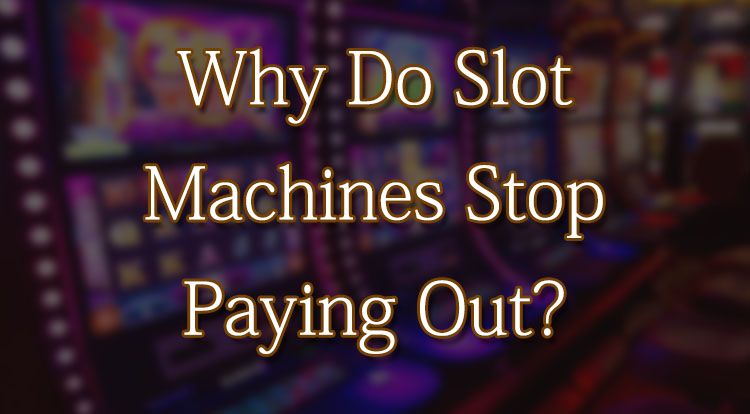
Slot machines are a casino staple with their vibrant visuals, uncomplicated mechanics, and the potential to hit the jackpot. Yet, one of the most common questions pertaining to them is: why do slot machines stop paying out?
This article endeavours to demystify the intriguing mechanics of slot machines, debunk age-old myths, and shed light on the factors that influence payouts.
Why Do Slot Machines Stop Paying?
A widespread notion among players is that slot machines can 'cool down' or 'go cold' after a stretch of payouts, thereby reducing the frequency of subsequent rewards. However, this is not true.
The underlying reality is that slot machines are governed by the principle of randomness and use a Random Number Generator (RNG) to produce unpredictable outcomes. Each outcome is independent of the previous ones, which eliminates the concept of a 'hot' or 'cold' slot machine. In essence, every spin of the reels is a new game with the same odds of winning as the one before it.
So, if it seems like the slot suddenly stopped paying, this is merely a coincidence. Winning is never guaranteed, and the odds of winning on a given slot game are the same on every spin.
Here are two other factors to consider:
Volatility
Volatility, also known as variance, refers to the theoretical behaviour of a slot in relation to the frequency and size of potential wins. Low-volatility slots often yield frequent but smaller wins, whereas high-volatility slots can lead to larger but less frequent payouts. However, this behaviour is strictly theoretical, and actual results may vary due to the inherent randomness of slot machines.
Return to Player (RTP)
The RTP is a theoretical percentage indicating how much a slot machine may pay out over a prolonged period. For instance, a slot game with an RTP of 96% implies that, theoretically, the slot averages out as returning £96 to players for every £100 wagered.
However, results may not reflect this percentage, as it was calculated over an exceptionally large sample of spins.
Are Slot Machines Fixed?
A common misconception is that when slot machines cease to yield frequent payouts, the casino must have manipulated the machine. However, this belief is far from accurate.
Casinos do not have control over the outcomes of slot machines – the RNG does. The outcomes are determined by the RNG, which produces random results every millisecond. As such, it's virtually impossible for anyone, including casino owners, to predict or influence these outcomes.
The RNG produces a vast array of number sequences every second. Each sequence corresponds to a unique combination of symbols on the reels, thus ensuring the unpredictability of each spin.
RNGs function ceaselessly, even when the slot machine is inactive. This constant operation makes it virtually impossible to predict a pattern or outcome of a spin. Therefore, no strategy or guesswork can guarantee a win, and the goal of playing slots should primarily be entertainment rather than profit.
Is It Best To Move After Winning On A Slot Machine?
The operation principle of RNGs debunks the belief that moving from one slot machine to another or remaining on one machine can influence your chances of winning. The outcomes of a slot machine are independent of the number of plays on a particular machine.
Therefore, whether you choose to stick to one machine or hop onto another, it does not impact your chances of a payout unless you are moving to an entirely different slot game with different stats. If you are moving from one machine to another to play the same game, then the odds of winning are the same on every single spin, regardless of previous results.
What Makes A Slot Machine Hit?
The RNG is the primary determinant of a slot machine's outcome. It continuously generates number sequences, each corresponding to a random combination of symbols on the reels. When you press the spin button, the RNG selects the sequence generated at that moment, resulting in a completely random outcome.
If the sequence displays symbols that form a winning combination, then you receive a payout in accordance with the paytable.
Do Casinos Control Slot Machines?
Contrary to popular belief, casinos do not control the outcomes of slot machines. The RNGs ensure that every spin is an independent event with an entirely random outcome, uninfluenced by the casino or external factors such as the time of day or the player's behaviour.
The RNGs are also regularly audited by a third-party company to ensure that they are operating at a required level of randomness in order to be fair to players and the casino alike. Casinos have no influence over how the RNG performs.
